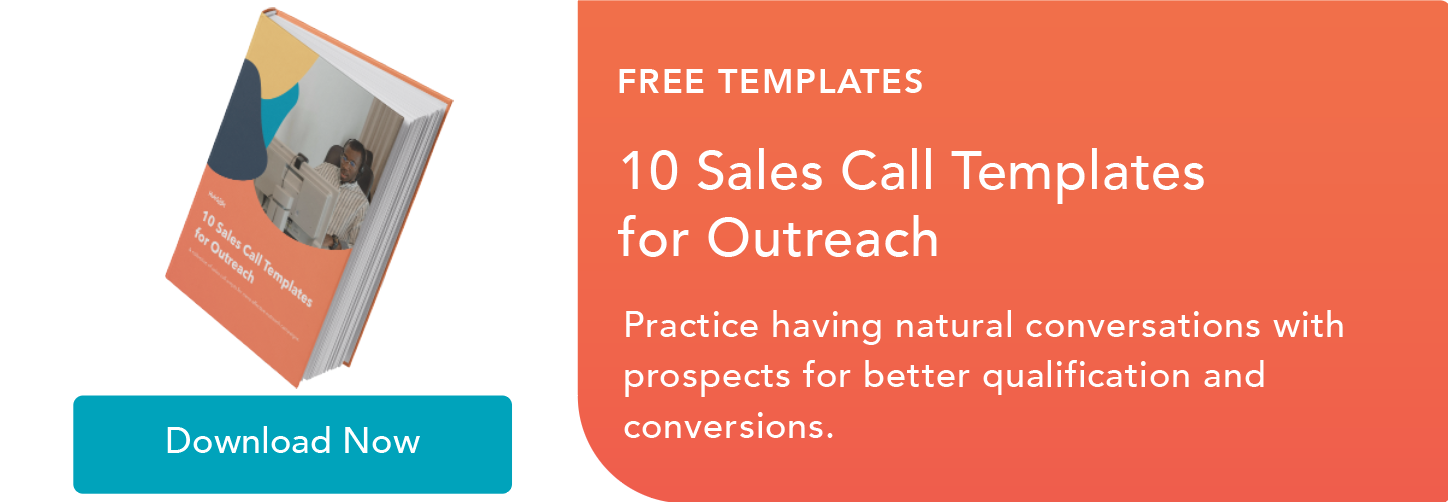Most Gen Z and Millennials would prefer to text, chat, email, or even video chat before picking up the phone. According to a BankMyCell study, 81% of millennials experience phone anxiety. Phone communication is a fading skill, but it’s still critical for many professions, such as sales.

Building confidence on the phone is useful for everyday life and for your career — especially if you work in sales, customer service, or media relations. According to a ValueSelling Associates survey, 50% of B2B sales reps fear making cold calls. Phone anxiety at work can hurt your performance or keep you from doing an essential part of your job.
In this post, we’ll guide you through how to recognize phone anxiety symptoms and how to get over phone anxiety with tips and exercises from experts.
Table of Contents
- What is phone anxiety?
- What are common phone anxiety symptoms?
- How to Conquer Phone Anxiety: Expert Tips
- Exercises to Help You Overcome Phone Anxiety
What is phone anxiety?
Phone anxiety — or telenophobia — is a condition that causes anxiety when talking on the phone. While most people experience milder forms of phone anxiety, some can experience stronger forms alongside cyberphobia (fear of computers), disrupting their daily life.
Like other phobias and anxiety disorders, phone anxiety can cause people to have unrealistic fears. Psychologists believe there can be a genetic or environmental factor to developing phobias, but it’s common for phone anxiety to start from an unpleasant experience talking on the phone.
What are Common Phone Anxiety Symptoms?
Common phone anxiety symptoms include chills, heart palpitations, shortness of breath, trembling, or an upset stomach.
“Phone anxiety is more than a phobia of phones,” explains Liam Liu, co-founder and chief marketing officer at ParcelPanel. “It can manifest as a reluctance to make phone calls, inability to answer calls, panic during the call, and anxiety when it rings. This can be counterproductive if your work involves making and receiving calls.”
How to Conquer Phone Anxiety: Expert Tips
Remember that phone anxiety, like other phobias, is often irrational. Phone anxiety can feel like you’re having a fight-or-flight response. You often need to use psychological tricks to get your body in line with what your mind knows: There’s no reason to fear a phone call.
We asked account executives, sales trainers, startup founders, and CEOs to share their real-world stories and insights about phone calls. Follow these phone anxiety tips to build confidence and sharpen your phone skills.
-jpg.jpeg)
Explore the root of your phone anxiety.
“To overcome phone anxiety, you need first to understand why it's there in the first place,” says Liu. “Some reasons include fear of being judged, working under pressure, and lack of nonverbal cues to help you read the other person's mind.”
If you’re looking for the cause of your anxiety, consider journaling. This can help you notice any patterns and revisit past experiences.
Trick your body.
Mind over matter also applies to talking on the phone. If you change your body language and your physical reactions to phone calls, your mind may follow.
“Put a smile on your face. It actually does translate to your speaking voice. Use your hands when talking, even if they can't see you. It helps you convey your message,” says Andy Sietsema, account executive at Dock and host of the podcast work stuff.
Practice, practice, practice.
If you know picking up the phone causes your heart to race, no need to worry. With practice, you can lessen your phone anxiety and start your way to becoming a natural.
“The best practice when dealing with phone anxiety is to improve slowly and steadily, step by step. The more you practice, the more confident you will become over time,” says Nebojsa Savicic, co-founder of Plainly.
Savicic suggests practicing with family or friends when you start, then moving into the professional world.
“Writing down whatever you want to say during the phone call and rehearsing it before will make you feel more comfortable. It’s a process, and it takes time,” Savicic says.
Visualize your success.
Picture yourself making a phone call, hitting all your major points, and closing a deal. Envisioning your own success can increase your confidence and performance.
“Imagine yourself speaking with a company on the phone. Think of yourself executing it well and allowing yourself to feel proud. Tell yourself that you are up for the task when the phone rings, that all is going to go well, and that the conversation can be enjoyable,” Leo Ye, founder and CEO of Cubo.
Start collecting your nos.
No is a powerful word. Barry Maher, a sales trainer and coach, explains.
“The more you ‘no's' you can hear from each prospect — without irritating the prospect — and the more prospects you talk to, the more successful you're going to be,” Maher says. “To hear all those most nos, you’ve got to be hardworking, you’ve got to be persistent, and you’ve got to be good.”
Remember, each no brings you closer to finding the right clients and closing successful deals.
“Top salespeople see every no as a small victory, a step on the path to ultimate success. Motivating yourself to take those steps and to make each step as meaningful as possible should be part of your job description,” Maher says.
Remind yourself that you’re calling a human.
“I remember my rugby coach saying, ‘The guys in front of me are like you, they have two arms and two legs, they are still human beings, they are not superior.’ This helps especially when I call C-level professionals,” says Xavier Bordier, team lead and sales development representative at Napta.
Remember that the person on the other side of the line is not so different from you. This can help put your anxieties at ease.
“Most of all, I always try to ‘kill people with kindness’: being super kind limits the bad interaction on the phone," Bordier says.
Exercises to Help You Overcome Phone Anxiety
Talking on the phone doesn’t come naturally for everyone. In addition to the lack of facial cues, people worry about things like phone etiquette, talking over someone, and bothering the person they’re calling.
People who are expert phone conversationalists become that way and practice. Try these exercises to discipline your body and mind.
-jpg.jpeg)
Breathing Techniques
Before or during a call, you can practice breathing techniques to steady yourself. Take slow, deep breaths, inhaling through your nose and out through your mouth to lower your heart rate.
Dmytro Sokhach, CEO of AdmixGlobal, used to become very nervous before calls.
“I noticed my breathing would become shallow and rapid, making me feel even more nervous,” he shared. “That's when I discovered the power of consciously controlling my breath to tackle phone anxiety.”
Here are Sokhach’s two favorite breathing techniques for talking on the phone.
The Magical 4-7-8 Technique
Inhale for 4 seconds, hold it for 7 seconds, and then exhale for 8 seconds. Practicing this technique before dialing a number or even during a call will help you calm down and focus on the conversation.
The Box Breathing Trick
Draw a square slowly on your leg or desk with your finger. Alternate a slow inhale and slow exhale each time you draw a side of the box.
Calendar Blocking for Calls
The ValueSelling Associates study revealed that 54% of initial meetings require more than five touchpoints to set up — and that 10% require 11 or more touches. If phone anxiety is causing you to procrastinate making calls, you’ll struggle to meet your goals.
Calendar management and calendar blocking are key to success. So, look at your calendar and block out times for calls and your other outreach. Then, stick to it each day. By assigning yourself dedicated time, it will be more difficult to avoid getting to your call list.
Phone Scripts
If you experience phone anxiety, you can prepare by creating and following a phone script. Following a phone script helps you sound more confident and keeps the conversation on track.
Cayla Thurman, Business Reputation Consultant for Rize Reviews, shared these simple steps for creating a phone script if you don’t have one:
- First, outline an introduction (but keep it brief).
- Write all the queries you would like to ask the person.
- Next, write all the possible questions the person you're talking to might ask.
- Write down how you plan to respond to each question or objection.
Once you’ve rehearsed a phone script multiple times with variations for different questions, try role-playing with your sales manager or a peer to build confidence. Preparing for objections with rebuttals will help you feel more comfortable giving rebuttals when people say no.
While phone scripts help build your confidence and knowledge of the subject matter, it’s important to allow for natural, human conversation to flow.
“I think it's also important to be yourself on a phone call, even if it's a sales call,” shared Ravi Davda, CEO of Rockstar Marketing. “I decided that I would be: honest, friendly, and approachable. Sometimes it works, and sometimes it doesn't, but I'd rather be true to myself rather than follow scripts that make me cringe."
Replaying the Conversation
If you’re struggling with phone calls, one idea is to record your calls (with the other person’s consent, of course) to discover where you’re going wrong and improve.
Listening to recordings of yourself can make you cringe — for instance, noticing how much you stammer — but it can help you pinpoint where you need to work on your script and delivery.
Review the recording yourself, or ask a coach or sales manager to give you pointed feedback. Technology is making this even easier. In addition to audio and video recording technology, virtual reality programs can simulate different scenarios for training.
The Hold Technique
Struggling with anxiety on the phone can be debilitating. What if they ask a question you don't know the answer to? What if you get overwhelmed? What if you can't catch your breath?
If you ever need a moment to collect your thoughts, don't be afraid to ask the prospect if it's alright if you place them on a brief hold.
A quick, "I don't know the answer to that, but if I can place you on a brief hold, I can get you an answer ..." can be a quick way for prospects to get the information they need and for you to take a quick break.
How to Hone Anxiety at Work
Telenophobia is just one form of anxiety that can manifest at work. When real or anticipated pressures cause you emotional distress, it can manifest in other forms of anxiety that can affect your productivity.
It’s important to manage anxiety at work to take care of your mental health and keep you from burning out. Practice mindfulness, seek social support, and exercise your body. Putting your well-being first won’t just help you feel better — it’ll improve your job performance.
![Free Resource: 10 Sales Call Script Templates [Download Now]](https://no-cache.hubspot.com/cta/default/53/64e5789a-605c-4e14-90d9-8aa3df310ee1.png)









